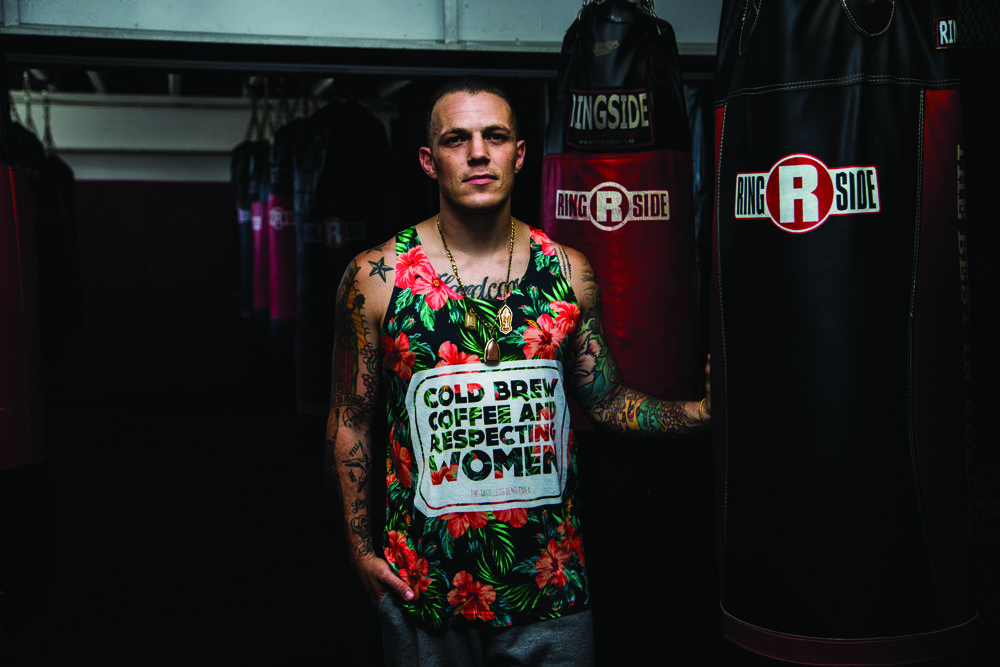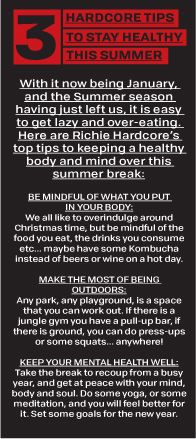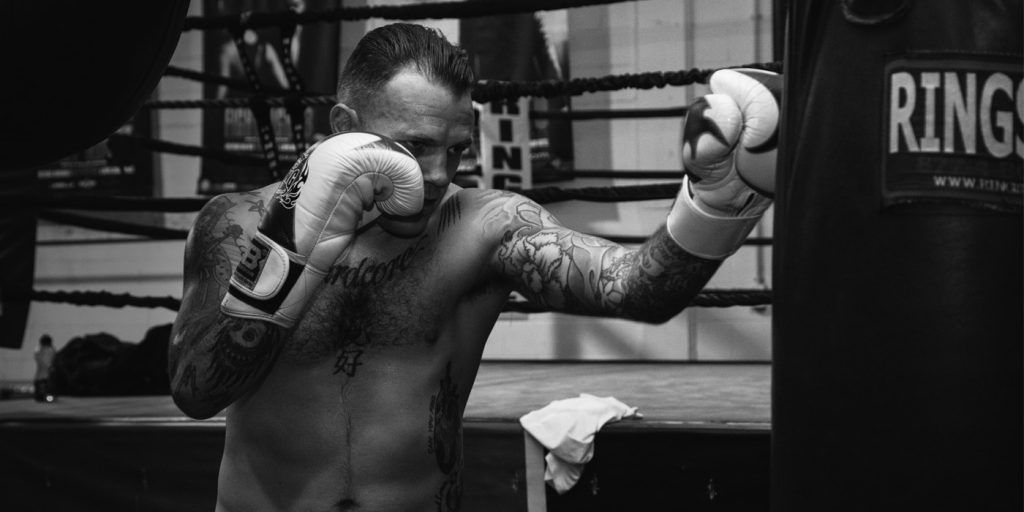Fighting For Social Change
More than 20 years ago, a young Richie Hardcore entered the ring, about to look his very first opponent in the eye, with one goal – to be the last man standing.
It’s hard to imagine what would have been going through his mind as the bell rang to signal the fight to commence. It would also have been impossible for young Hardcore to imagine that in his late 30s he would have hung up his gloves after a successful fighting career, to be fighting for a different cause – social change.
As an anti-violence family advocate and ambassador for White Ribbon New Zealand, Hardcore is also currently working on a project for youth development and martial arts for UNESCO. He is spending his days working with the community through public speaking and social media to deliver the powerful messages of stopping men’s violence against women, stopping sexual violence and breaking down what we call ‘rape culture’.
Hardcore started fighting and competing in martial arts at the young age of 13. Over the course of his fighting career, he has collected a total of five New Zealand titles, as well as a WKBF a four man title – fighting two guys in one night – and a South Pacific Muay Thai title.
“I had a good, fun career,” he tells M2. “I got to fight in big stadiums in Thailand, which was a big deal for me, and fight on TV over there. I fought in Japan and Australia. I won more than I lost and met a lot of great people.”
Hardcore has a particular charm about him. At first glance, he is a staunch-looking guy, covered in tattoos, with a body that matches his kickboxing and personal training career, but his killer fade and winning smile make him approachable and relatable to many. All of these constituents benefit his objective of creating a relatable look, one that other men feel comfortable with approaching and listening and relating to.
A few years ago, Hardcore retired from fighting in order to focus on his other projects and become a coach, where he has been training others and helping them pursue careers similar to his own, with one of the fighters he works with having recently won the King in the Ring title. He currently trains a group of clients at both Dos Manos and Lee Gar gym in Auckland City: “when I’m teaching private clients, it’s good, because everything I’m teaching – whether it’s the strength and conditioning or fighting – is all battle tested.”
He has learnt lots from the influence of Muay Thai, or Thai boxing, in his life. And he thanks Thai boxing for teaching him to be a good coach and trainer. Until recently, Hardcore has been working in Auckland for the Ministry of Health in alcohol and drug abuse, but always had side projects in advocacy and personal training. As he found potholes in the Ministry of Health system, he made the decision to go out on a limb and work for himself full-time.
“I’ve been an educator,” he says, “working in schools as a keynote presenter around stopping men’s violence against women, stopping sexual violence, breaking down what we call rape culture… [I teach] what it looks like, and how it might manifest. Because it’s a confronting term for most people… I just hope that by bringing it to the frontline, we can break it down so it makes sense and [so that] we can all act differently with that knowledge.”

White Ribbon New Zealand started 26 years ago in 1991 in Canada, and Hardcore says his role as an ambassador with the organisation has made him realise what a scary world we live in. The number of women being beaten, abused, raped and/or murdered is on the rise, and this shocking realisation is why Hardcore is so passionate about his job. In addition, the White Ribbon Foundation is creating a space and awareness for men to lead by example.
In a time when social media is a cornerstone in our life, campaigns like ‘#metoo’ have been invaluable in providing a platform where women and men who have fallen victims to domestic or sexual abuse can feel safe and empowered to come forward and tell the truth about events that have happened to them.
“Social media is a really effective way of spreading that concept,” Hardcore says. “If you look at the cover of [the December 2017] Time magazine, and the whole #metoo movement is on social media, it’s been brought to [people’s attention] and has amplified the message”.
A question Hardcore often gets asked is: “how do you come from a professional fighting background, and now have a mandate to create awareness, and put an end to domestic abuse?”
Hardcore’s answer is a simple one: “[The fighting I did] is completely different to family violence,” he explains. “The unequal distribution of power – you’re controlling someone, you’re hurting someone – there’s no consent in any of that. The benefit I find is that when I go and talk, say, to a marae full of dudes, who have been to jail or are patched gang members, because I have that sporting background, guys stop and listen… I’m not saying anything that a lot of feminist activists haven’t been saying for a long time, I’m just trying to use my voice…

“Men need to challenge other men about the language they use… It’s just not a joke when you yell something out the car window at a girl. There are a million other examples to of what’s not OK.”
This world is raising children to think that it is ‘cool’ to do drugs, to mistreat women, to rebel. It’s this glorification of drugs and the nature of men going out on a Friday night encouraging inappropriate behaviour that has to stop. The cycle of change should first start at home. “Fathers [are] talking to their daughters about going out and being safe,” Hardcore explains. “Not talking to strangers, or going down dark alleys, but they don’t have those conversations with their sons. Most don’t say: ‘don’t ever grab a girl’s ass. That it’s not okay.’ They don’t have conversations about how to approach girls respectfully.”
Staying physically fit is an important part of Hardcore’s life. This benefits him in his training and general health. “Who has a hard day at work and comes home and goes for a run? Not many people, but there are so many more people out there that have a hard day and come home and have a few drinks… That’s where problems are starting.”
Hardcore’s stance towards social and society-based change continues to inspire and influence many. Any average man can take a leaf out of Hardcore’s book… or at least a training session or two! When asked about the correlation between our mental and physical health, Hardcore puts it simply: “you can’t divorce your emotional health and spiritual health… If you’re neglecting your body – eating junk food, doing drugs, drinking too much alcohol or leading a sedentary lifestyle – you’re not going to feel good about yourself emotionally; you’re not going to be as resilient to emotional trauma. You’re not going to have a good coping mechanism in place for stress. You will also become more prone to further physical illness.”
Maybe his past violent career and tough looks mean he can shrug off challenges to his masculinity and he can feel strong in revealing more positive, gentler attitudes towards women, but his message is for all men, and it’s a good one: his fight now is to influence social change and change the perception of what it is to be a man.

